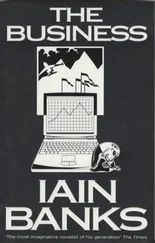I wished I could accept Tagm’s moral subtraction. I sat down on the end of the bed, head in my hands, staring at the holo of the planet in the wall. Tagm came over, hugged me, hands on my shoulders, head on mine. 'Dizzy; you have to stop thinking about it. Let’s go do something. You can’t sit watching that damn holo all day.'
I stroked one of Tagm’s hands, gazed again at the slowly revolving planet, my gaze flicking in one glance from pole to equator. 'You know, when I was in Paris, seeing Linter for the first time, I was standing at the top of some steps in the courtyard where Linter’s place was, and I looked across it and there was a little notice on the wall saying it was forbidden to take photographs of the courtyard without the man’s permission.' I turned to Tagm. 'They want to own the light!'
6.4: Dramatic Exit, Or, Thank You And Goodnight
At five minutes and three seconds past three AM, GMT, on the morning of January the second, 1978, the General Contact Unit Arbitrary broke orbit above the planet Earth. It left behind an octet of Main Observation Satellites — six of them in near-GS orbits — a scattering of drones and minor missiles, and a small plantation of young oaks on a bluff near Elk Creek, California.
The ship had brought Linter’s body back up, displacing it from its freezer in a New York City morgue. But when we left, Linter stayed, in a fashion. I argued he ought to be buried on-planet, but the ship disagreed. Linter’s last instructions regarding the disposal of his remains had been issued fifteen years earlier, when he first joined Contact, and were quite conventional; his corpse was to be displaced into the centre of the nearest star. So the sun gained a bodyweight, courtesy of Culture tradition, and in a million years, maybe, a little of the light from Linter’s body would shine upon the planet he had loved.
The Arbitrary held its darkfield for a few minutes, then dropped it just past Mars (so there was just a chance it left an image on an Earth telescope). Meanwhile it was snapping all its various remote drones and sats away from the other planets in the system. It stayed in real space right up till the last moment (making it possible that its rapidly increasing mass produced a blip on a terrestrial gravity-wave experiment, deep in some mountain-mine), then totalled as it dispatched Linter’s body into the stellar core, sucked a last few drones of Pluto and a couple of outlying comets, and slung Li’s diamond at Neptune (where it’s probably still in orbit).
I’d decided to leave the Arbitrary after the R&R, but after I’d relaxed on Svanrayt Orbital for a few weeks I changed my mind. I had too many friends on the ship, and anyway it seemed genuinely upset when it found out I was thinking of transferring. It charmed me into staying. But it never did tell me whether it had been watching Linter and me that night in New York.
So, did I really believe I was to blame, or was I kidding even myself? I don’t know. I didn’t know then, and I don’t know now.
There was guilt, I recall, but it was an odd sort of guilt. What really annoyed me, what I did find hard to take, was my complicity not in what Linter was trying to do, and not in his own half-willed death, but in the generality of transferred myth those people accepted as reality.
It strikes me that although we occasionally carp about Having To Suffer, and moan about never producing real Art, and become despondent or try too hard to compensate, we are indulging in our usual trick of synthesizing something to worry about, and should really be thanking ourselves that we live the life we do. We may think ourselves parasites, complain about Mind-generated tales, and long for 'genuine' feelings, 'real' emotion, but we are missing the point, and indeed making a work of art ourselves in imagining such an uncomplicated existence is even possible. We have the best of it. The alternative is something like Earth, where as much as they suffer, for all that they burn with pain and confused, bewildered angst , they produce more dross than anything else; soap operas and quiz programmes, junk papers and pulp romances.
Worse than that, there is an osmosis from fiction to reality, a constant contamination which distorts the truth behind both and fuzzes the telling distinctions in life itself, categorizing real situations and feelings by a set of rules largely culled from the most hoary fictional clichés, the most familiar and received nonsense. Hence the soap operas, and those who try to live their lives as soap operas, while believing the stories to be true; hence the quizzes where the ideal is to think as close to the mean as possible, and the one who conforms utterly is the one who stands above the rest; the Winner…
They always had too many stories, I believe; they were too free with their acclaim and their loyalty, too easily impressed by simple strength or a cunning word. They worshipped at too many altars.
Well, there’s your story.
Perhaps it’s as well I haven’t changed very much over the years; I doubt that it’s much different from what I’d have written a year or a decade later, rather than a century. [15] Ha! — 'The Drone'
It’s funny the images that stay with you though. Over the years one thing has haunted me, one dream recurred. It really has nothing to do with me in a sense, because it was something I never saw… yet it stays there, nevertheless.
I didn’t want to be displaced, that night, nor did I want to travel out to somewhere remote enough for a module to pick me up without being seen. I got the black-body drone to lift me from the city; right up, darkfielded, into the sky in the midst of Manhattan, rising above all that light and noise into the darkness, quiet as any falling feather. I sat on the Drone’s back, still in shock I suppose, and don’t even remember transferring to the dark module a few kilometres above the grid of urban light. I saw but didn’t watch, and thought not of my own flight, but about the other drones the ship might be using on the planet at the time; where they might be, what doing.
I mentioned the Arbitrary collected snowflakes. Actually it was searching for a pair of identical ice crystals. It had — has — a collection; not holes or figure break-downs, but actual samples of ice crystals from every part of the galaxy it has ever visited where it found frozen water.
It only ever collects a few flakes each time, of course; a saturation pick-up would be… inelegant.
I suppose it must still be looking. What it will do if it ever does find two identical crystals, it has never said. I don’t know that it really wants to find them, anyway.
But I thought of that, as I left the glittering, grumbling city beneath me. I thought — and I still dream about this, maybe once or twice a year — of some drone, its flat back star-dappled, quietly in the steppes or at the edge of a polynya off Antarctica, gently lifting a single flake of snow, teasing it away from the rest, and hesitating perhaps, before going, displaced or rising, taking its tiny, perfect cargo to the orbiting starship, and leaving the frozen plains, or the waste of ice, once more at peace.
7: Perfidy, Or, A Few Words From 'The Drone'
Well, thank goodness that’s over. I don’t mind telling you this has been an extremely difficult translation, not helped at all by Sma’s intransigent and at times obstructive attitude. She frequently used Marain expressions it would be impossible to render accurately into English without at least a three-dimensional diagram, and consistently refused to redraft or revise the text to facilitate its translation. I have done my best, but I can take no responsibility for any misunderstanding caused by any part of this communication.
Читать дальше












